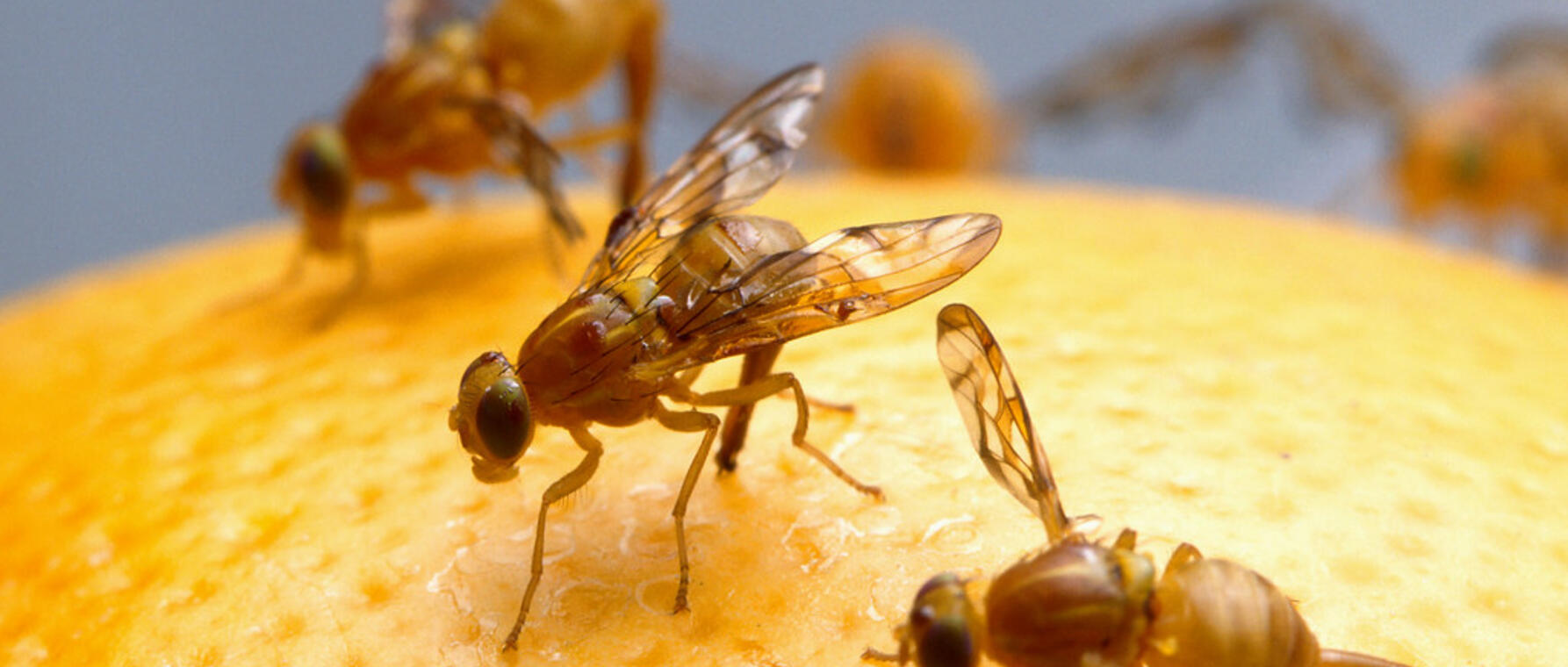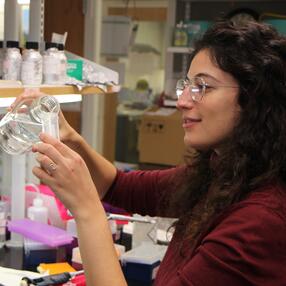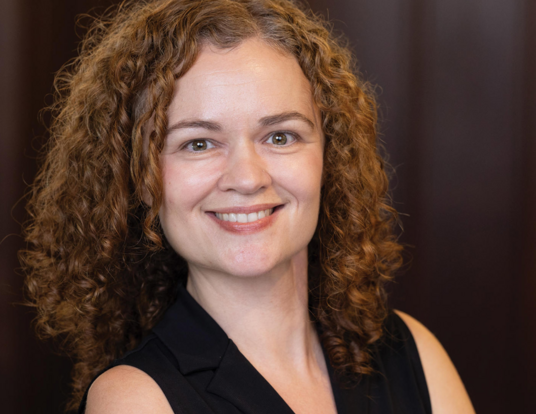Fruitful Research
Anastasia Repouliou, PhD Student

Research at Risk: Since World War II, universities have worked with the federal government to create an innovation ecosystem that has yielded life-changing progress. Now much of that work may be halted as funding is withdrawn. Find out more about the threats to medical, engineering, and scientific research, as well as how Harvard is fighting to preserve this work—and the University's core values.
Anastasia Repouliou is a PhD student in the Department of Molecular and Cellular Biology. She discusses her work on uncovering the mechanism of a protein essential to the development of fruit flies, how she came to her research, and the lessons she learned from switching labs at Harvard.
The Oskar Goes to . . .
Fruit flies are the little insects you might find in your kitchen if you’ve left bananas out. To reproduce, fruit flies need special cells like we do: sperm and eggs that come together to make a new fly. This reproductive process starts with a fertilized egg cell that eventually develops into a mature fruit fly with all sorts of different cell types: brain cells, heart cells, and its own egg or sperm cells.

Each of these cell types gets some sort of instruction to tell them what kind of cell to become. For egg and sperm cells in particular, a whole group of molecules has to come together in the right place at the right time to instruct some of the early cells in the fruit fly embryo to become reproductive cells. A single protein, called Oskar, orchestrates this entire process.
Biologists have long known that Oskar can assemble all these instructive molecules where they need to be, but we don’t know exactly how the protein does it—its “molecular mechanism.” In my research, I’m trying to figure out how Oskar interacts with all these other molecules.
There are various types of interactions that molecules can have with one another and with their surrounding environment. The interactions a molecule uses to perform its function are basically its molecular mechanism. Since molecules with similar properties often use the same mechanisms, learning about the molecular mechanism of one protein helps us understand how others work as well. For example, if we can figure out Oskar’s molecular mechanism, then we might get closer to figuring out how similar proteins work, even unrelated proteins in humans. And the more we learn, the more we understand about how our bodies work in health and disease.
From the Cosmic to the Microscopic
When I was young, I was really into astronomy and astrophysics. Then I started to study biology and was fascinated by it. I am amazed by how things as small as proteins can create big and complex organisms. I sometimes parallel proteins to LEGOs—they’re essentially building blocks that can be combined in innumerable ways to generate the complexity of life.
In terms of techniques, I love microscopes and imaging work. I like being able to see what I’m studying and then treat it quantitatively, to have this beautiful image, and then extract information from it. Almost all of my data is based on imaging, which means I take thousands of pictures and analyze them to draw conclusions. As far as future research plans go, I am open to different fields and different scientific questions. I will be happy as long as I find another protein with an interesting molecular mechanism like Oskar and can work to figure out how it does its job.
Change Is Good
I came to my current project because I told Professor Cassandra Extavour, my advisor here at Harvard Griffin GSAS, that I was interested in studying protein interactions at a molecular level, which made studying the molecular mechanism of Oskar a perfect fit.
But I didn’t start in the Extavour Lab. I switched during my third year of graduate school. Of course, leaving behind a project you have invested significant time and effort into and parting with labmates you have grown close to is not easy, but you get the most out of your PhD if you find the right fit with your lab and your advisor. I've learned valuable lessons both from my time in my initial lab and from transitioning to my current lab. I discovered that more people than I had realized switched labs. I think talking about such transitions more openly can help normalize them within our community.
Science is inherently dynamic. Developing resilience to change and thriving in diverse environments are key parts of the scientific journey. Throughout this process, I've learned that two of the most valuable aspects of a PhD are learning to think critically about science and to meticulously design experiments. These skills are transferable across projects and can be developed in any supportive, intellectually stimulating environment regardless of the specifics of any particular project. So I encourage younger graduate students not to be afraid of change. It can turn out more than all right!
Get the Latest Updates
Join Our Newsletter
Subscribe to Colloquy Podcast
Simplecast



